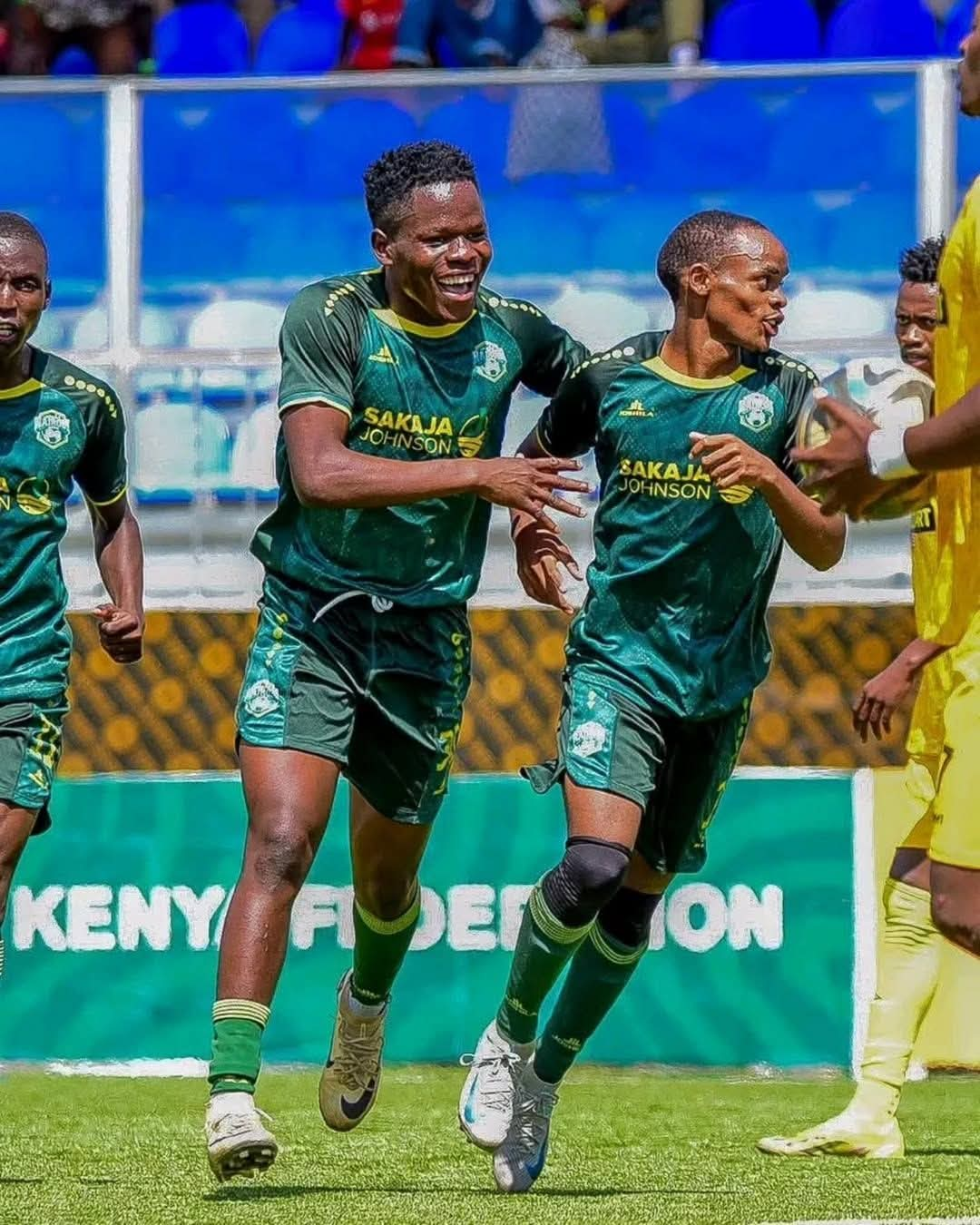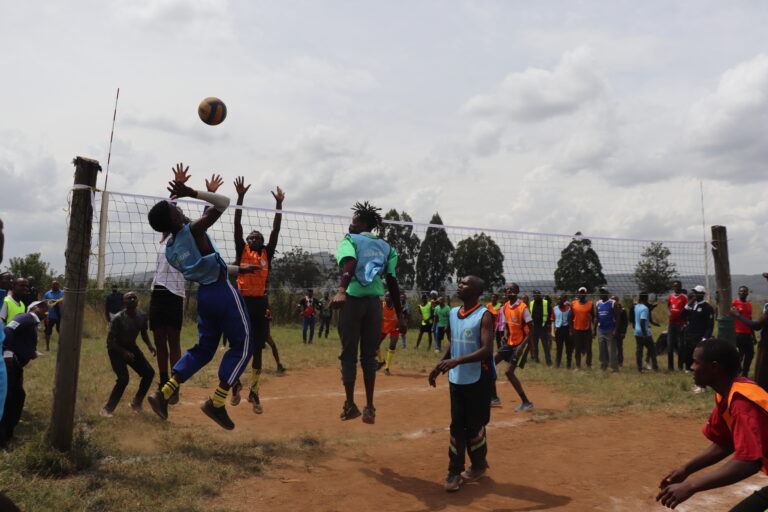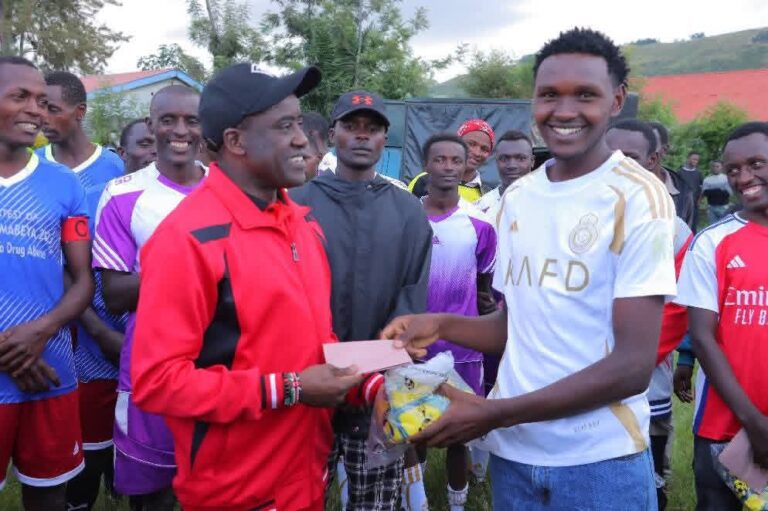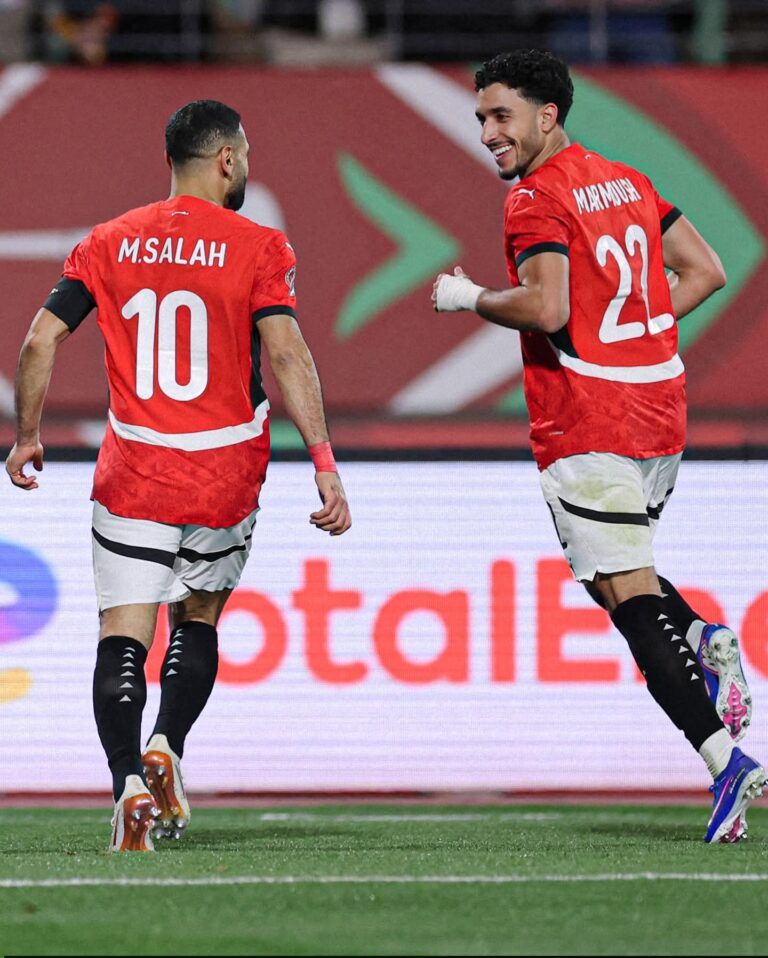
Nairobi United players celebrating after scoring against Gor Mahia during the 2025 FKF Cup final. Photo; Carol Radull Facebook
In a thrilling upset that has sent shockwaves through Kenyan football, Nairobi United emerged victorious against the perennial giants Gor Mahia, clinching the 2025 FKF Cup with a 2-1 win at the Ulinzi Sports Complex. The final whistle marked the end of a fiercely contested match and the beginning of a new chapter for Nairobi United, who lifted their first-ever major domestic title, while Gor Mahia faced an unexpected setback despite their storied legacy.
The match pitted the underdog Nairobi United, recently crowned FKF National Super League champions, against Gor Mahia, a club with an illustrious history boasting 21 Kenyan Premier League titles and 11 FKF President’s Cup victories. Gor Mahia, often dubbed the “Kings of Kenyan Football,” entered the final as favorites, with their head coach confidently declaring on the eve of the match, “It’s a final, you don’t have any room for errors.” However, Nairobi United defied the odds, showcasing composure, hunger, and tactical discipline that belied their status as newcomers to the national stage.
The scoring began with Frank Ouya putting Nairobi United ahead, only for Gor Mahia’s Ben Stanley Omondi to level the score in the first half, igniting hopes of a comeback for the green-and-white faithful. Yet, the decisive moment came in the second half when Enock Machaka sealed the victory with a second goal, ensuring Nairobi United’s place in history. The final scoreline of 2-1 reflected not just a triumph on the pitch but a testament to the growing competitiveness of Kenya’s football landscape.
This victory is more than just a trophy for Nairobi United—it’s a historic milestone. The win secures their qualification for next season’s CAF Confederation Cup, marking their debut on the continental stage. For a team that has only recently ascended to prominence, this achievement underscores the potential for up-and-coming clubs to challenge the established order. The image of Ouya and Machaka standing alongside Stanley, each with a trophy in hand, symbolizes both individual brilliance and the collective effort that propelled Nairobi United to glory.
Gor Mahia’s dominance in Kenyan football is well-documented, with their 1987 African Cup Winners’ Cup triumph remaining the only continental title won by a Kenyan club. Their 21 league titles, including the most recent in the 2023-24 season, have cemented their status as a powerhouse. However, Sunday’s defeat highlights a shifting dynamic in the Kenyan Premier League, where emerging teams like Nairobi United are beginning to disrupt the traditional hierarchy. This upset could signal the start of a new era, where passion and tactical innovation rival historical pedigree.
The event, prominently sponsored by Mozzart Bet, reflects the growing intersection of sports and betting in African football. The vibrant yellow backdrop adorned with the Mozzart Bet logo underscores the commercial stakes involved. According to a 2022 study from the Journal of Gambling Studies, sports betting revenue across Africa is growing at an estimated 15% annually, a trend that brings both opportunities and challenges. While such sponsorships boost the visibility and funding of tournaments like the FKF Cup, they also raise questions about match integrity, especially in an era where technological advancements and global betting networks can influence outcomes.
Interestingly, despite the excitement surrounding this match, there remains a notable gap in the scientific study of Kenyan football players’ performance metrics. Unlike their European counterparts, where extensive research informs training and nutrition strategies, Kenyan football lacks peer-reviewed data to optimize player development. This victory by Nairobi United could serve as a catalyst for investment in sports science, potentially unlocking new levels of performance for both the winners and their rivals.
As the dust settles on this historic final, Nairobi United’s triumph offers a narrative of hope and possibility. For fans, it’s a reminder that in football, as in life, the underdog can rise. For the sport itself, it’s an invitation to embrace innovation—whether through tactical evolution, scientific research, or robust regulations to safeguard integrity amid the rise of betting.
The image of the triumphant Nairobi United players, trophies gleaming under the stadium lights, will linger as a defining moment in Kenyan football history. As the nation celebrates, all eyes now turn to how this victory will shape the future of the beautiful game in East Africa




